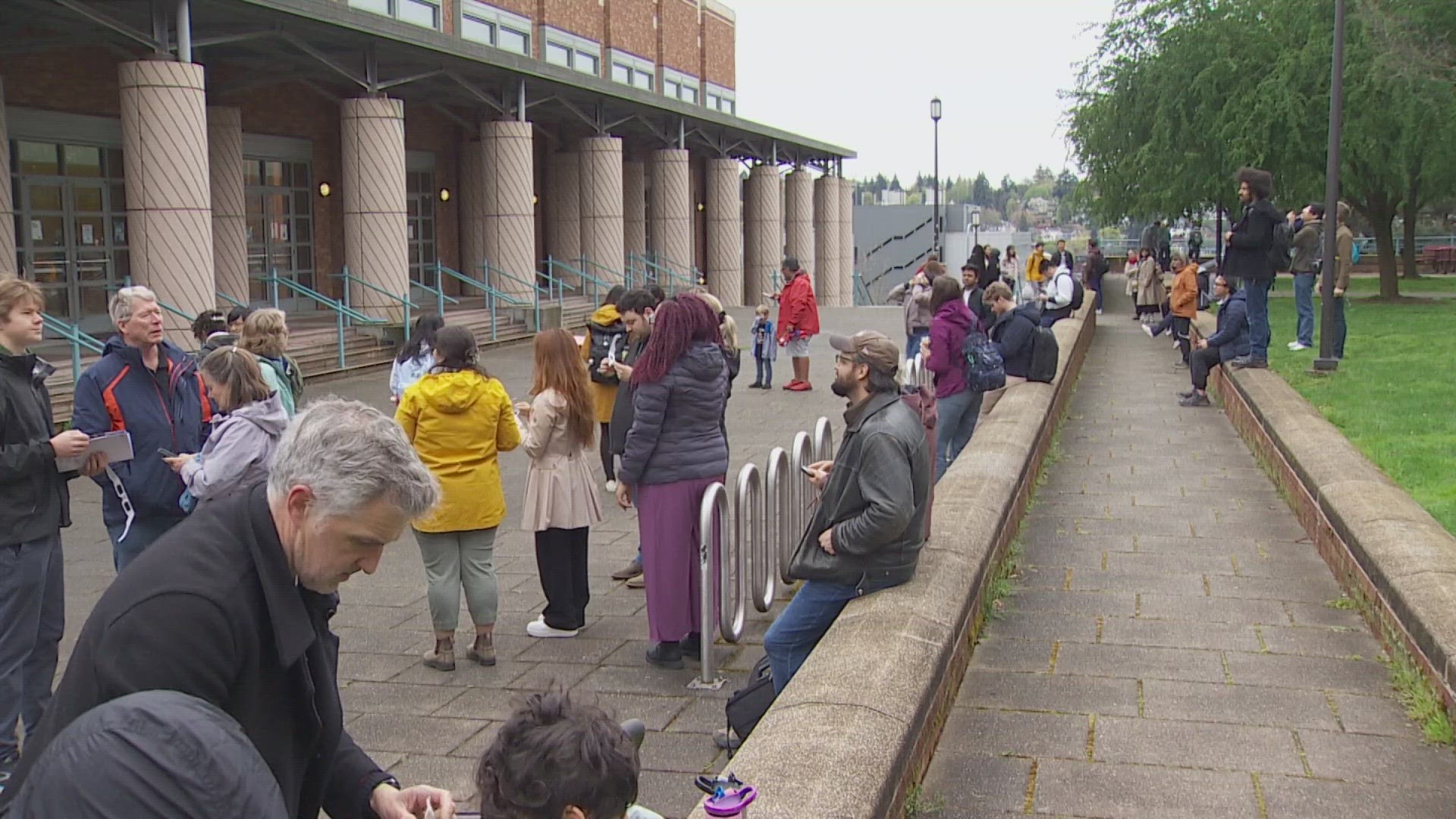SEATTLE — Millions of Americans looked up to the skies for the first total eclipse in seven years, but those in western Washington not in the path of totality experienced a partial eclipse. Due to cloudy conditions, even that was tough to see.
Despite the weather conditions, the courtyard of the University of Washington Astronomy Department was busy with people trying to catch a glimpse of the partial eclipse. The Department of Astronomy hosted a viewing event with telescopes and eclipse glasses.
"I'm involved in a lot of astronomy outreach so its really cool to see this many non-UW students. There's kids, there's older people just coming out to see the eclipse and have fun with science," said Ruby Heidgerken, an astronomy and physics major at UW.
"I woke up this morning and it was raining, and I thought wow how about that. it's not going to be very many people but a lot of people have come out which is wonderful," said Oliver Fraser, a teaching professor in UW's Dept of Astronomy.
In western Washington, the moon covered about 20% of the sun's surface. The eclipse began at 10:39 a.m. and lasted until 12:21 p.m. in Seattle, with its peak at 11:29 a.m. The timing varied by just a few seconds depending where you are in the state.
"The most we would have seen here is the moon taking a bite out of 20 percent of the sun and now the moon is moving further away and getting smaller and smaller. I guess we know that’s happening even thoough we can't," Fraser said.
Traveling to view the 2024 solar eclipse
That's why many Washingtonians traveled to be in the path of totality. Kaitlin McTague Bartos made sure to be in Norwalk, Ohio.
"I almost was in tears in 2017 - the first time I saw it. And this one was no different.," McTague Bartos said.
"We actually had a pretty long journey, we flew into Chicago, because flights into Cleveland were $1,200 one way," McTague Bartos said.
She picked up other friends from Seattle at the airport in Chicago and they drove to Norwalk, Ohio. McTague Bartos' family lives near by and met her there to be in the center line of eclipse.
"It's so indescribable than then it that the moon, totally encapsulates the sun and you get the dark center, basically, with just the glow of the sun around it. It just takes your breath away," McTague Bartos said.
This event is extra special for Kaitlin, who's an engineer working on lunar projects for Blue Origin based in Kent.
"Coming from an aerospace or space themed background, it's just so cool for me to be able to see these kinds of things, especially when you only get a handful of these in a lifetime," said McTague Bartos.
Watch: Bonney Lake resident travels to Texas to view solar eclipse

